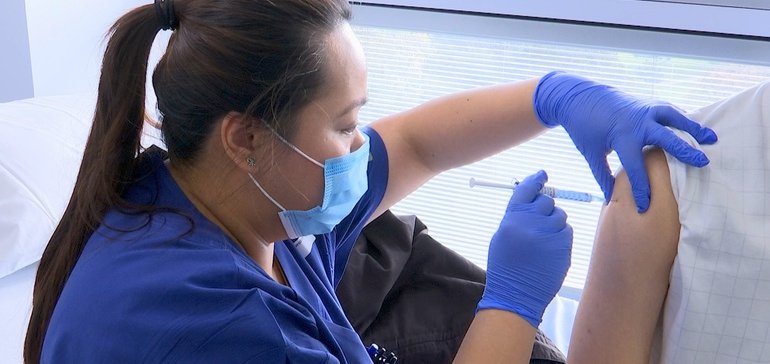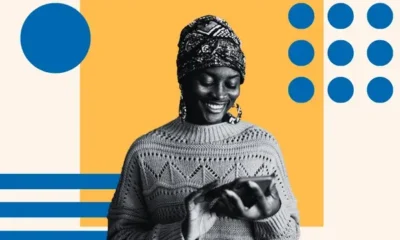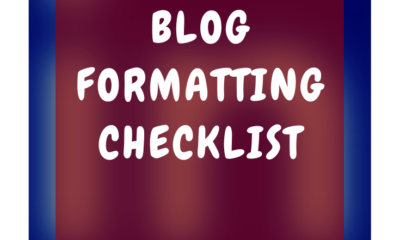SOCIAL
Facebook, Twitter and Google to Team Up to Combat COVID-19 Vaccine Misinformation

With a COVID-19 vaccine nearing release, the major tech platforms have agreed to partner on a new program, in conjunction with fact-checking organizations, in order to formulate new, improved approaches to combatting vaccine misinformation.
As reported by BBC:
“Taking part in the effort alongside Facebook, Google-owned YouTube and Twitter are the UK’s Department for Digital, Culture, Media and Sport, the Reuters Institute for the Study of Journalism, Africa Check, Canada’s Privacy Council Office and five other international fact-checking organizations.”
Fact-checking charity Full Fact will co-ordinate the anti-misinformation push.
That could see the platforms develop new, more effective ways for countering misinformation, and for detecting misleading reports before they can gain traction online.
All three companies have already implemented measures to combat anti-vax content – Facebook announced a ban on anti-vax ads in October, expanding its efforts to reduce the reach of anti-vax content, while Twitter added warnings on vaccine-related searches in March last year. YouTube has also moved to demonetize channels and videos which share anti-vax rhetoric.
Yet, health experts say that these measures don’t go far enough. Last July, months before the COVID-19 outbreak, a group of more than 60 public health leaders from around the world issued a public plea to the internet giants to monitor and label inaccurate and disproven claims about vaccines, in order to stop the dangerous growth of various anti-vax movements.
The group of medical professionals said that the rise of anti-vax groups had lead to serious declines in community vaccination rates, putting millions of people at risk. And again, this was before the COVID-19 pandemic, which has sparked new growth in conspiracy theories around the virus, and fueled further anti-vax sentiment as a result.
Indeed, back in July, US medical expert Dr. Anthony Fauci said that the US would face significant difficulties in moving beyond the pandemic due to “general anti-science, anti-authority, anti-vaccine feeling” throughout the community. That will delay an effective vaccine rollout, which, in turn, will see ongoing lockdowns and mitigation efforts as communities resist such measures.
Online platforms play a key part in this. Despite its efforts to limit the reach of anti-vax content, Facebook still hosts thousands of anti-vax related groups, while it’s easy to find YouTube videos that support anti-vax conspiracies, despite YouTube pulling ads from such content, when detected.
Just a few months back, YouTube, Facebook and Twitter all removed an anti-vax video posted by Breitbart – but not before it reached tens of millions of views across their platforms, spreading anti-science messaging.
These are the areas where the platforms will be looking to improve, and hopefully, through this new, collaborative effort, they’ll be able to formulate new plans to not only limit the reach of such, but eliminate it entirely, in order to ensure a smooth roll-out of the COVID-19 vaccine.
It’s a big challenge, but this may be the start of an improved effort on all types of misinformation online.
SOCIAL
Snapchat Explores New Messaging Retention Feature: A Game-Changer or Risky Move?

In a recent announcement, Snapchat revealed a groundbreaking update that challenges its traditional design ethos. The platform is experimenting with an option that allows users to defy the 24-hour auto-delete rule, a feature synonymous with Snapchat’s ephemeral messaging model.
The proposed change aims to introduce a “Never delete” option in messaging retention settings, aligning Snapchat more closely with conventional messaging apps. While this move may blur Snapchat’s distinctive selling point, Snap appears convinced of its necessity.
According to Snap, the decision stems from user feedback and a commitment to innovation based on user needs. The company aims to provide greater flexibility and control over conversations, catering to the preferences of its community.
Currently undergoing trials in select markets, the new feature empowers users to adjust retention settings on a conversation-by-conversation basis. Flexibility remains paramount, with participants able to modify settings within chats and receive in-chat notifications to ensure transparency.
Snapchat underscores that the default auto-delete feature will persist, reinforcing its design philosophy centered on ephemerality. However, with the app gaining traction as a primary messaging platform, the option offers users a means to preserve longer chat histories.
The update marks a pivotal moment for Snapchat, renowned for its disappearing message premise, especially popular among younger demographics. Retaining this focus has been pivotal to Snapchat’s identity, but the shift suggests a broader strategy aimed at diversifying its user base.
This strategy may appeal particularly to older demographics, potentially extending Snapchat’s relevance as users age. By emulating features of conventional messaging platforms, Snapchat seeks to enhance its appeal and broaden its reach.
Yet, the introduction of message retention poses questions about Snapchat’s uniqueness. While addressing user demands, the risk of diluting Snapchat’s distinctiveness looms large.
As Snapchat ventures into uncharted territory, the outcome of this experiment remains uncertain. Will message retention propel Snapchat to new heights, or will it compromise the platform’s uniqueness?
Only time will tell.
SOCIAL
Catering to specific audience boosts your business, says accountant turned coach

While it is tempting to try to appeal to a broad audience, the founder of alcohol-free coaching service Just the Tonic, Sandra Parker, believes the best thing you can do for your business is focus on your niche. Here’s how she did just that.
When running a business, reaching out to as many clients as possible can be tempting. But it also risks making your marketing “too generic,” warns Sandra Parker, the founder of Just The Tonic Coaching.
“From the very start of my business, I knew exactly who I could help and who I couldn’t,” Parker told My Biggest Lessons.
Parker struggled with alcohol dependence as a young professional. Today, her business targets high-achieving individuals who face challenges similar to those she had early in her career.
“I understand their frustrations, I understand their fears, and I understand their coping mechanisms and the stories they’re telling themselves,” Parker said. “Because of that, I’m able to market very effectively, to speak in a language that they understand, and am able to reach them.”Â
“I believe that it’s really important that you know exactly who your customer or your client is, and you target them, and you resist the temptation to make your marketing too generic to try and reach everyone,” she explained.
“If you speak specifically to your target clients, you will reach them, and I believe that’s the way that you’re going to be more successful.
Watch the video for more of Sandra Parker’s biggest lessons.
SOCIAL
Instagram Tests Live-Stream Games to Enhance Engagement

Instagram’s testing out some new options to help spice up your live-streams in the app, with some live broadcasters now able to select a game that they can play with viewers in-stream.
As you can see in these example screens, posted by Ahmed Ghanem, some creators now have the option to play either “This or That”, a question and answer prompt that you can share with your viewers, or “Trivia”, to generate more engagement within your IG live-streams.
That could be a simple way to spark more conversation and interaction, which could then lead into further engagement opportunities from your live audience.
Meta’s been exploring more ways to make live-streaming a bigger consideration for IG creators, with a view to live-streams potentially catching on with more users.
That includes the gradual expansion of its “Stars” live-stream donation program, giving more creators in more regions a means to accept donations from live-stream viewers, while back in December, Instagram also added some new options to make it easier to go live using third-party tools via desktop PCs.
Live streaming has been a major shift in China, where shopping live-streams, in particular, have led to massive opportunities for streaming platforms. They haven’t caught on in the same way in Western regions, but as TikTok and YouTube look to push live-stream adoption, there is still a chance that they will become a much bigger element in future.
Which is why IG is also trying to stay in touch, and add more ways for its creators to engage via streams. Live-stream games is another element within this, which could make this a better community-building, and potentially sales-driving option.
We’ve asked Instagram for more information on this test, and we’ll update this post if/when we hear back.
-

 MARKETING7 days ago
MARKETING7 days agoThe key to correcting the C-suite trust deficit
-

 MARKETING6 days ago
MARKETING6 days agoA Recap of Everything Marketers & Advertisers Need to Know
-

 PPC4 days ago
PPC4 days agoHow the TikTok Algorithm Works in 2024 (+9 Ways to Go Viral)
-

 MARKETING4 days ago
MARKETING4 days agoHow To Protect Your People and Brand
-

 SEARCHENGINES5 days ago
SEARCHENGINES5 days agoGoogle Started Enforcing The Site Reputation Abuse Policy
-

 SEO5 days ago
SEO5 days agoBlog Post Checklist: Check All Prior to Hitting “Publish”
-

 SEO3 days ago
SEO3 days agoHow to Use Keywords for SEO: The Complete Beginner’s Guide
-

 PPC5 days ago
PPC5 days agoHow to Craft Compelling Google Ads for eCommerce



